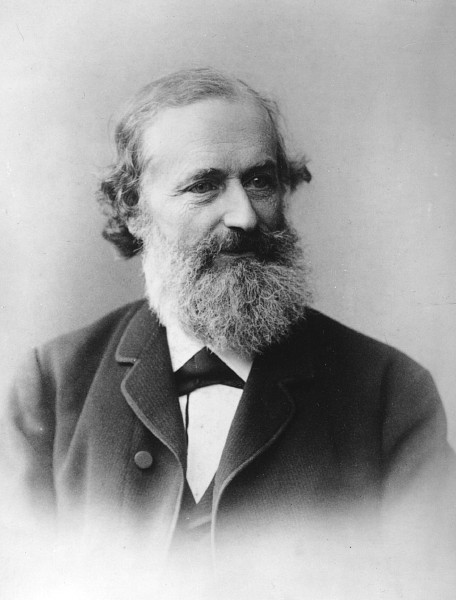Gustav Robert Kirchhoff, together with Robert Bunsen, is considered the founder of spectral analysis and significantly influenced the development of theoretical physics in Germany.
Within the scope of his spectroscopic experimentation he formulated Kirchhoff’s law of thermal radiation. According to this law, the relationship between emission and absorption abilities is equal for all bodies and its function depends solely upon temperature and wavelength.
In this context, he also developed the idea of black bodies
. These bodies absorb all radiation such that their emission curve is identical with that of the universal law of thermal radiation. For him, determining this body’s emission curve as a function of its temperature and the radiation wavelength is thus an exercise of the greatest importance
. Yet it took more than three decades to physically realize such a black body and measure its emissions.
 Scene
Scene


 1st Slide
1st Slide
 Branching Point
Branching Point
 Module: Herausforderungen im Labor: Grenzprobleme - Labor
Module: Herausforderungen im Labor: Grenzprobleme - Labor Sequence: 0.0._START_20610_einstieg_grenzprobleme
Sequence: 0.0._START_20610_einstieg_grenzprobleme Branching Point: Borderline Problems of Classical Physics
Branching Point: Borderline Problems of Classical Physics Slide: Ludwig Boltzmann: Lectures on the Principles of Mechanics
Slide: Ludwig Boltzmann: Lectures on the Principles of Mechanics 

